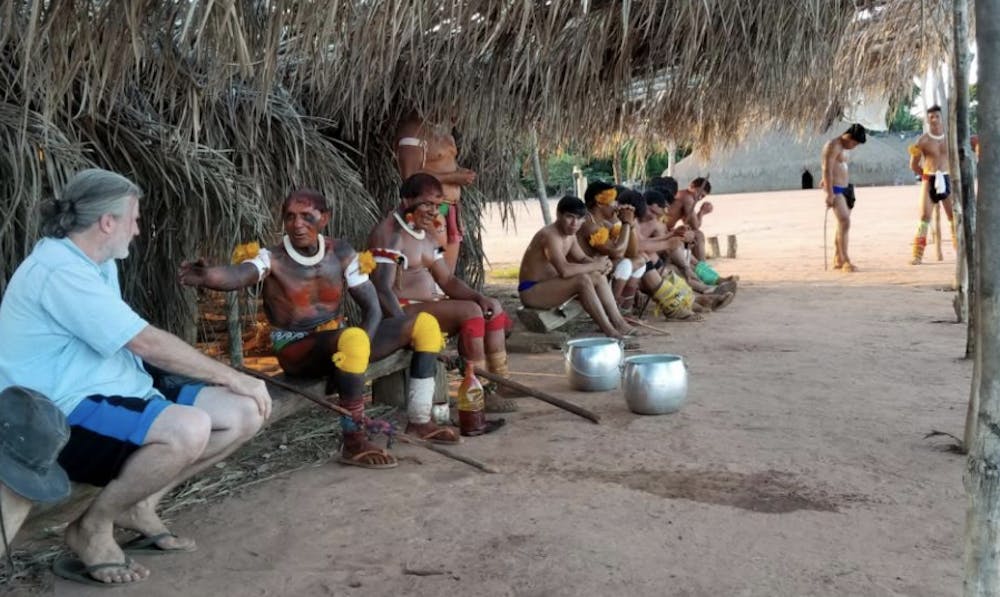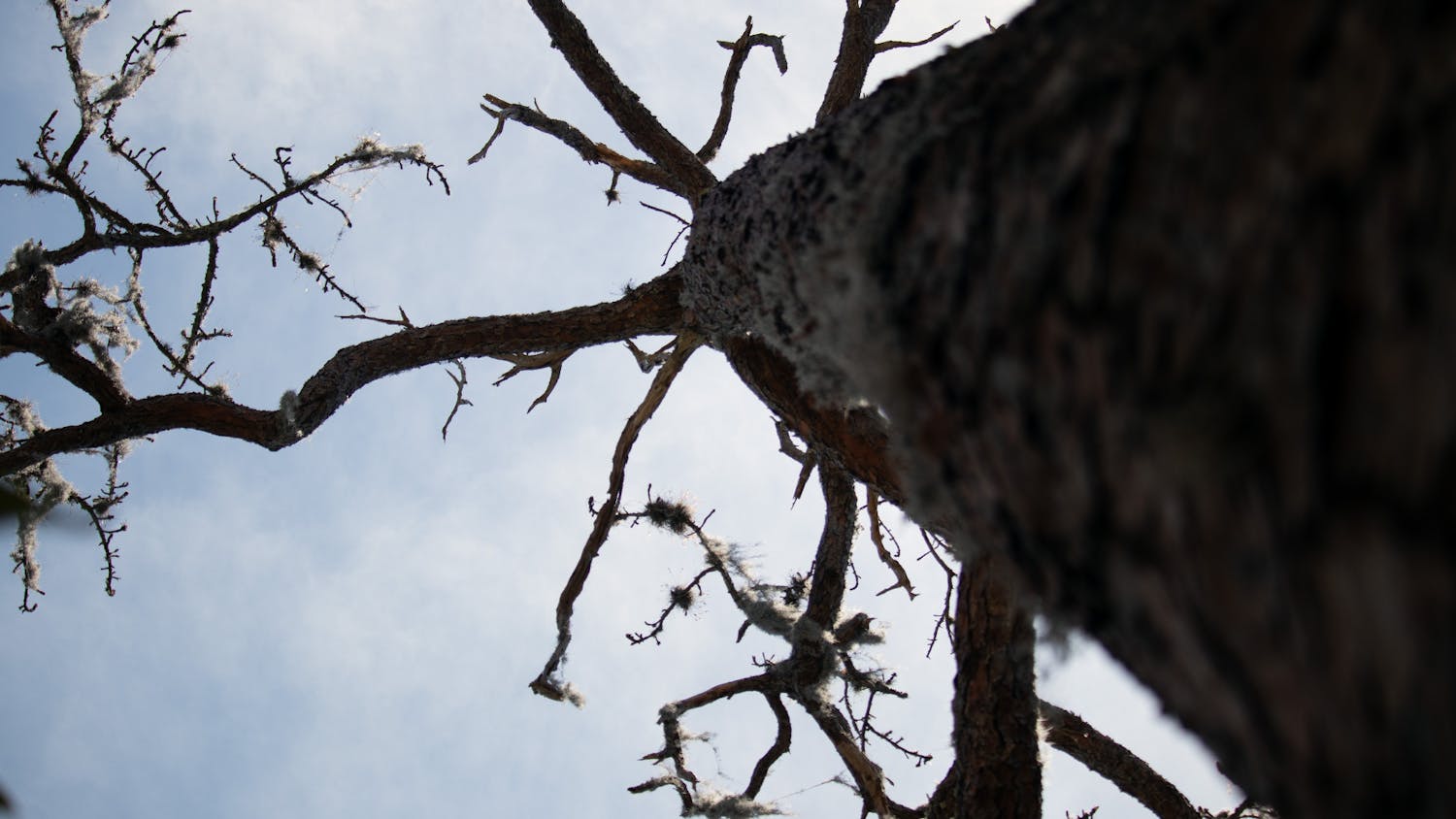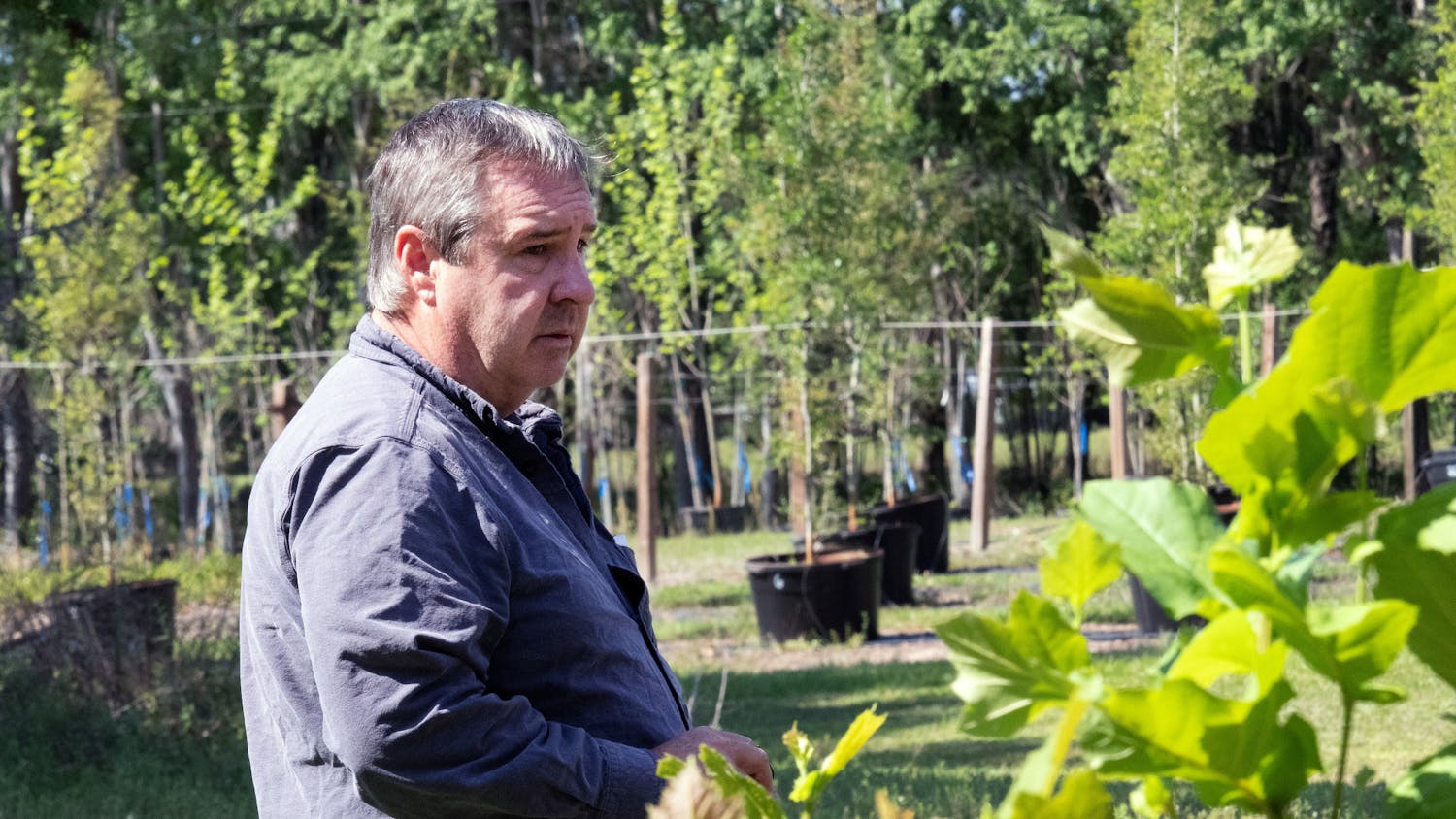When he entered a house in the Kuikuro village, Micheal Heckenberger was greeted by a smell medley of smokiness, traditional Xingu cooking and excess body paint. Moving through the house was a sensual experience in itself, he said, adjusting to the open circular spaces and side-by-side hammocks.
“You're as likely to hear a flute in the middle of the night as a car honking its horn,” he said.
A UF anthropology professor for over two decades, Heckenberger has authored several books on Amazonian Indigenous peoples as a result of living with the Kuikuro tribe in Brazil for two years.
He was committed to researching the Brazilian Amazon before he even began graduate school, he said. After meeting with indigenous leaders of the Kuikuro — an indigenous group from the Xingu region of Brazil — in 1991, Heckenberger sought to understand their culture and the differences between Latin America and the U.S.
“I was very taken by the place of Indigenous people in the modern world,” he said. “Obviously, ‘save the Amazon’ has been a theme that’s been around for quite a long time.”
The Kuikuro currently inhabit three villages — Ipaste, Ahukugi and Lahatuá. They number 500 in total, and Ipatse is the most populous with 300 people.
Heckenberger’s research primarily focuses on mapping the Xingu region and transcribing Kuikuro history. However, it also highlights the prevalence of climate change’s effect on Indigenous peoples in the Brazilian Amazon.
The Kuikuro, after facing numerous health challenges amid COVID-19, are now living through the “Amazon tipping point” — a term used to describe the point when the rainforest will no longer be able to bounce back from destruction and extreme weather. The Amazon rainforest has long been used as a marker for global climate change — it absorbs an estimated 1.5 billion tons of carbon dioxide a year, serving as a “net carbon sink.”
With time, the tipping point could lead to a downward spiral, in which the rainforest would be destroyed and pour around 90 billion metric tons of carbon dioxide into the atmosphere.
Indigenous peoples like the Kuikuro have experienced the effect of global temperature changes already, Heckenberger said. The Xingu region is one of the most heavily deforested areas in the Amazon, and the forest has become more flammable.
“It is at an ecological transition between the humid tropical forest and the moist tropical forest where things like global changes and temperatures have a very immediate pronounced impact,” Heckenberger said.
However, research shows Indigenous people can provide solutions to remedy a warming world. The United Nations Food and Agriculture Association found these communities to have a sustainable and self-sufficient approach to life, contributing little to climate change, yet experiencing its immediate and profound effect.
Heckenberger described the first time he observed these sustainable practices with campfires along the bank of the village.
“It was my first moment where I really felt like, ‘Wow, this is a different world,’” he said. “People actually building campfires for something other than roasting marshmallows.”
Managed for centuries, the Kuikuro’s ecological practices are in danger due to the increasing problems climate change poses. With the increasing drought and forest fires, the Xingu region as a whole will have to adapt more fire management practices.
For Heckenberger, the solution lies partly in bridging the gap between Indigenous and U.S. understandings of climate change.
Connectivity with institutions like UF is crucial to building relationships with indigenous interests, he said. He collaborated with partners and the Kuikuro to develop mapping software across the Xingu region.
“Creating common tools … not to say, ‘OK, well this works at the local level, what's going on at the global level,’ but to address global participation, institutional, national and local in the same dialogue in the same process,” he said.
Heckenberger brought the Kuikuro Nation leader, Chief Afukaká Kuikuro, to UF in February to discuss collaborations between Indigenous peoples and the U.S.
Kenneth Sassaman, a UF anthropology professor, described Heckenberger’s work as groundbreaking.
“Mike's redefined the way that modern Western scholars think about the Amazon and think about the history of people in the Amazon,” he said. “He's changed the narrative in a very good way — in a way that respects and honors the Indigenous history which goes back thousands of years.”
In the current climate crisis, Heckenberger envisions Amazon’s future to be largely negative.
“Everything south of the Amazon River is probably not going to be …. really intact, large blocks of tropical forest,” he said. “The only place it's going to be is in indigenous areas.”
The Kuikuro’s technologies are crucial to reversing the trajectory of climate change, Heckenberger said, as well as protecting their tribe.
The first time he entered the village, he said, he floated down a river rich with vegetation and lined with small fires.
“Everywhere the light hits, the conditions are perfect — it just gets green,” he said.
Contact Peyton at pharris@alligator.org. Follow her on Twitter @peytonlharris.

Peyton Harris is a third-year English major and Senior News Director for the Alligator. In her free time, she likes to doomscroll on Twitter and crochet.






